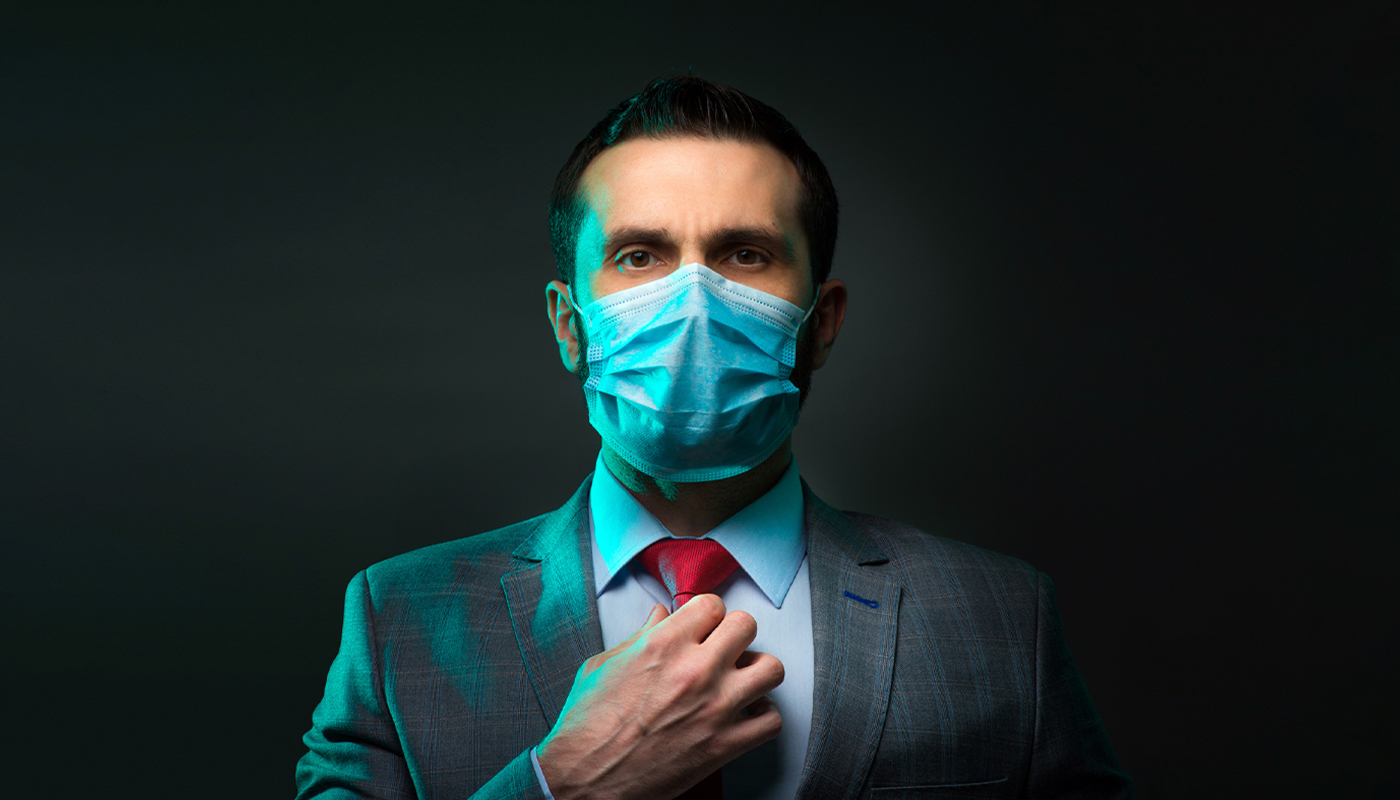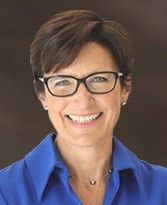
Desperate COVID-19 times have called for desperate measures, and, as it turns out, a decent-sized dose of TLC.
More than a year on, many companies and their executives continue operating in crisis mode. The rigors of the pandemic have been physically and mentally exhausting. Risk professionals have had to wear many hats throughout, but perhaps none more of a stretch than that of workplace therapist. (Ironic, considering that risk management was historically relegated to back offices, more involved with quantitative models than with managing people.)
When companies made the sudden transition to remote work, they did a lot of employee hand-holding early on, and even risk professionals prioritized it, a responsibility that hadn't previously been part of their repertoire in such a personal and widespread way. It stood to reason, then, that taking care of employees would not only touch on how they were faring logistically, but also on their feelings and anxieties amid a constantly-evolving situation and uncertainty about the future.
In 2020, corporate leaders - risk managers among them - took to the so-called COVID couch as quasi-counselors, even as they themselves mostly tried to stay stoic and not say much openly about their own stress.

“The pandemic is a leveler,” noted Alexander Stein, a psychoanalyst, principal in the consulting firm Boswell Group, and founder of Dolus Advisors, who counsels C-suite executives, board members and others on complex organizational issues.
“Everybody's stressed,” Dr. Stein emphasized. “Everyone is vulnerable. Everyone in the organization is affected in some way. People are finding themselves managing risks in ways they never had to think about before.”
“A Top Concern”
“An effective enterprise risk management program has to balance the hard side - policies, limits [and] systems - with the soft side - people, incentives [and] culture - of risk management,” commented risk consultant James Lam, president of James Lam & Associates and former chief risk officer of GE Capital Markets Services and Fidelity Investments, in an email.
“With the pandemic, employee health and safety has become a top concern for corporate directors and executives,” added Lam, who was board risk committee chair of E*TRADE before it was acquired last year by Morgan Stanley. “This includes mental health.”
Statistics vary, but stories abound about mental health issues being on the rise.
In a January Harvard Gazette article, Michelle Williams, dean of the T.H. Chan School of Public Health, warned, “'The past year has been terribly damaging to our collective mental health . . . It will be months, if not years, before we are fully able to grasp the scope of the mental health issues born out of this pandemic.'”
A MetLife Employee Benefit Trends Study, reported in the April 3 New York Times, showed that out of 2,651 employees interviewed in December and January: 34% felt “burned out,” up from 27% in April 2020; 22% “depressed,” up from 17%; and 37% “stressed,” up from 34%.
Hitting the Wall
And then there's COVID fatigue - also known as hitting the pandemic wall - a lethargy going well beyond being tired of lockdowns and having to wear masks.
“If you've been feeling depressed, worried or lonely; you have a hard time getting motivated; or you feel more tired during pandemic life, you're not alone,” Susan E.W. Spencer wrote in a December UMass Med News article.
Spencer cited UMass Medical School behavioral health specialists as saying that “COVID fatigue is real and is affecting mental health.”
It's also impacting people at work.
Granted, Wall Street is legendary for long, grueling working hours. But COVID appears to have taken this to an extreme.
Goldman Sachs chief executive David Solomon addressed complaints coming from first-year analysts alleging “'inhumane' working conditions, including 95-hour weeks and instances of workplace abuse,” according to a March 22 CNN report. One analyst was said to have written in a survey, “My body physically hurts all the time an d mentally I'm in a really dark place.”
“Clients are active, and volumes in a lot of our businesses are at historic highs,” Solomon said. “Of course, the combination of the pandemic and all this activity put stress and strain on everyone at Goldman Sachs.”
Offering Relief
Goldman was reportedly invoking its “Saturday rule,” making the office off-limits to junior staff from 9:00 pm Friday to 9:00 am Sunday, along with promising to hire more junior staff in its investment banking division.

Shortly after taking the helm as Citigroup's CEO, Jane Fraser declared “Zoom-free Fridays” - meaning any internal meetings will be in audio-only mode. (Videoconferencing could continue with clients and regulators.) The bank also designated May 28 as Citi Reset Day and announced it will be taking other steps to help restore work-life balance.
“The blurring of the lines between home and work and the relentlessness of the pandemic workday have taken a toll on our well-being,” Fraser maintained in a memo to 210,000 employees. “lt's simply not sustainable.”
Speaking more generally, Lam revealed that he has “heard from senior risk officers who are in nine to 10 Zoom meetings in a day.”
“That is not acceptable,” the consultant stated. “Risk managers can bring this important discussion to the forefront, perhaps through the addition of new risk appetite statements and metrics.”
Lisa Rawls, a KPMG Advisory principal for governance, risk and compliance (GRC) technology, located in the Washington, D.C., area, can relate. She confessed that because of the constant stream of back-to-back video meetings, she has to block out time on her calendar to simply “make sure [to] eat lunch.”
Rawls indicated that KPMG Advisory implemented an initiative encouraging consultants to take certain scheduled calls away from their desks - even outside while taking a walk - to break the monotony.
Setting Limits
“I think this is a moment when independent directors and chief risk officers have to push back and make sure that work at home doesn't turn into work around the clock,” Lam suggested.
“This begins with putting limits on their own time but should extend to the overall employee base,” he advised. “I personally cap Zoom meetings to four per day and go for a walk or do Tai chi in between.”
There's no question that leadership and corporate culture are critical when it comes to how well companies handle a crisis and, eventually, come out of it.
“Central to all of this are care and empathy,” Stein contended.
“Upper management and the board have outsized influence and authority over others,” he continued. How a company responds is “directly tethered to the psychological risk profile of its leadership.”
Stein insisted, “One of the hallmarks of extraordinary leadership is empathy.”
These days, one would be hard pressed to participate in risk webinars and virtual conferences and not hear about the importance of being compassionate when communicating with co-workers, clients, customers and community members. If anything, it's becoming more common.
Attending to Feelings
KPMG's Rawls finds herself even more attuned to how people on her teams are feeling, acknowledging, “I take the time to ask how they're doing and what they've done for themselves [that day].”
Her KPMG Advisory colleague Cyndi Izzo, a principal for technology risk management who is based in the Boston area, pointed out that “as professionals, we learned that with good support from leaders and communication with clients we can pivot quickly.”
People “deal with crisis and change differently,” she explained. “Some of the staff took leaves of absence, others embraced the challenges in different ways.”
This has “taught me to be more mindful,” she shared, “and more accepting.”
“One of the silver linings of the global pandemic,” Stein observed, is that it's been “incredibly humanizing.”
L.A. Winokur is a veteran business journalist based in the San Francisco Bay Area.